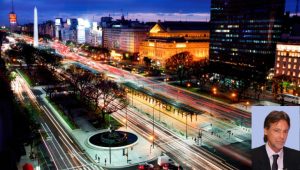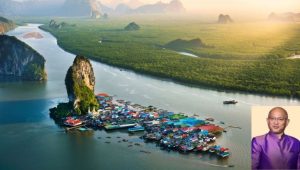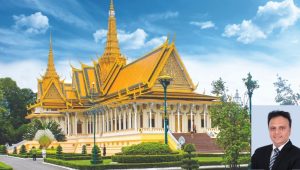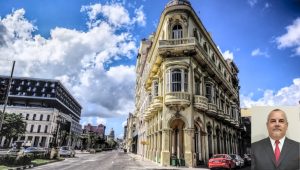The Smiling Coast of Africa
Tourism in The Gambia has become the fastest-growing sector of the economy, as increasing number of visitors visit the West African country every year for its beaches, birds, sunshine, the culture and the sociability and hospitality of people. The peace, security and political stability of the country add to the comfort of the travellers
By H.E. Mr. Fafa Sanyang, Ambassador of the Gambia to United Arab Emirates
The Gambia—commonly called the Smiling Coast of Africa—is a small West African country bordering Senegal and the Atlantic Ocean. It has an area of nearly 11,000 square kilometres and approximately 80 kilometres of pristine coastline with a navigable river that flows over 1,100 km inland.
The country has enjoyed peaceful and political stability since 2018 following positive change in the Global Peace Index, moving up from 35th rank to 76th rank globally.
Investment opportunities in The Gambia abound in the areas of agriculture, travel and tourism, energy, infrastructure, ICT infrastructure, the services industry, fisheries and manufacturing and processing. The investment climate is excellent being a peaceful and politically stable country with competitive labour costs, liberal market economy, strategic location and access to West Africa and European markets.
The Gambia had a GDP of $1.902 billion in 2020 and prior to the COVID-19 pandemic, had a real GDP growth rate of over 7% in 2018 and 6% in 2019. Though the pandemic caused economic growth to contract by 0.2% in 2020, strong containment measures mitigated such impacts and the country is poised for strong growth in future. Thanks to prudent macroeconomic policies, it has maintained a low inflation rate hovering around 6% for the past five years.
Tourism, an Important Sector
The Gambia’s location on the ocean, pristine beaches, ideal climate and proximity to Europe has made it a popular tourist destination in West Africa, boosted by private sector investments in eco-tourism facilities. The tourism sector accounts for approximately 20% of GDP and is among the government’s top priority sectors. The greater services sector (including tourism, trade, transport and communications) collectively contributes up to 65% of the country’s GDP. The agriculture sector accounts for approximately 30% of GDP.
The Gambia has developed into a sub-regional re-export hub as industries profit from the country’s liberal trade policies and efficient port infrastructure. (Source: World Bank, GIEPA)
Infrastructural Development
The Government of the Gambia is highly committed to continued improvements in infrastructure throughout the country.
There continues to be sustained improvement in basic infrastructure, including the notable expansion of the road network, telecommunication system, seaport and airport, and the electricity grid. Ongoing infrastructure development projects to improve the business environment include:
• Strategic improvements to the road system throughout the country
• Expansion of the capacity of the Port of Banjul and warehouse complex
• Implementation of a fully computerised system in Port of Banjul to simplify cargo documentation procedures
The Gambia’s primary ports of entry are Banjul International Airport and the Port of Banjul. Banjul International Airport previously received a $14 million investment to modernise, expand and improve all of its facilities and runways. This project has now been completed.
The Port of Banjul is also subject to ongoing improvements. As a port to West Africa and accounting for about 90% of the country’s trade in both volume and weight, the Port plays a vital role in the trade and distribution of cargo to neighbouring countries including Mali, Guinea Bissau, Senegal, and others.
Government Policy
Known for its peacefulness and political stability, The Gambia gained independence in 1965 and is a multiparty republic with one legislative body.
The Government’s National Development Plan of 2018 identifies eight priority areas through which the government will strive to deliver good governance, accountability, social cohesion, reconciliation, and a revitalised economy. Such priority areas include:
• Restoring good governance, respect for human rights, the rule of law, and empowering citizens through decentralization and local governance;
• Stabilizing the economy, stimulating growth, and transforming the economy;
• Modernising agriculture and fisheries for sustained economic growth, food and nutritional security and poverty reduction;
• Investing in the Gambian people through improved education and health services, and building a caring society;
• Building infrastructure and restoring energy services to power the economy;
• Promoting an inclusive and culture-cantered tourism for sustainable growth;
• Reaping the demographic dividend through an empowered youth; and
• Making the private sector the engine of growth, transformation, and job creation
Initiatives to Boost Business Confidence
The Gambia has made significant developments to the legal system that have improved the business environment and business confidence. They include:
• Decentralisation of the judicial system;
• Development of an alternative dispute resolution system;
• Improvement in the administration and scheduling of legal cases; and
• Development of copy and property rights legislations
Institutional Development to Support Businesses
The Gambia has also made significant efforts to further institutional development to support businesses and promote a level playing field. The following organisations are committed to such continued improvements:
• The Gambia Competition Commission;
• The Public Utility Regulatory Authority;
• The Gambia Investment and Export Promotion Agency;
• The Alternative Dispute Resolution Agency;
• The Credit Reference Bureau, Under the Central Bank of the Gambia (CBG); and
• The Gambia Standards Bureau
2019 Tourism Destination of the Year
The Gambia received the Golden Sun Award for Tourism Destination of the Year in 2019. The Media and Tourism Award Gala was held in Munich, Germany, and the award was accepted by Ambassador Teneng Mba Jaiteh.
Top 6 Reasons to Select The Gambia For Tourism Investment
Strong Demand Outlook: The number of international arrivals in The Gambia has increased by 14% annually between 2001 and 2019. Tourism expenditure on leisure tourism increased by 269% from 2009-2019 and expenditure on business tourism increased by 200% during the same period.
Diverse Tourism Attractions: The Gambia has an international reputation for its pristine beaches, winter sun and palm trees. While Sun and Sand Tourism is the main driver for tourism, in the recent past other segments such as Eco-tourism and Bird-based tourism have seen growing popularity.
Ease of Travel: The Banjul International Airport in the Gambia has international flight routes with countries across Europe, the Middle East and Africa. The Government of Gambia has also introduced tourist-friendly visa policies making The Gambia an attractive destination.
Vibrant Culture and Young Talent: Often referred to as the “Smiling Coast of Africa” Gambians are famed for their hospitality and laid-back lifestyle. The Gambia is also highly regarded for its high degree of tolerance and respect for other cultures.
Competitive Costs: The Gambia is highly competitive with other peer locations in tourism professions such as housekeepers.
Safety and High Quality of Life: The country is one of the safest and politically stable countries in Africa and has attracted over $830 million in FDI since 2003.
(Source: World Travel & Tourism Council, World Bank, International Trade Administration, TripAdvisor, Lonely Planet, Gambia Real Estate News, World Bank, Gambia Tourism Board, The Gambia Bureau of Statistics, UNCTAD).















